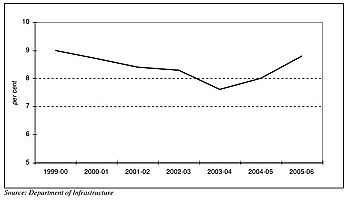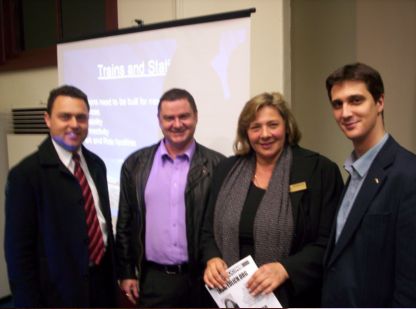As the Deputy Chair and Maroondah delegate of the Eastern Transport Coalition I was invited to present to a transport forum organised by the Australasian Centre for the Governance and Management of Urban Transport (GAMUT).
The forum was organised in response to the Government’s Victorian Transport Plan to identify common areas of agreement and discuss any particular aspects of concern. Each speaker discussed the need for further investment in public transport, particularly in regard to further suburban rail extensions and bus improvements.
On behalf of the Eastern Transport Coalition I discussed the need for planning around rail improvements in the eastern suburbs, namely the Rowville and Doncaster rail lines.
I also discussed the need for certainty around the infrastructure investments in the Central Activity Districts, particularly in regard to the public transport improvements that are required for Box Hill and Ringwood.
In addition I raised concerns over a reduction in the commitments made to the SmartBus network, despite the overwhelming response it has received through significant increases in patronage.
The SmartBus network was a key feature of the State Government’s 2006 transport plan, Meeting Our Transport Challenges. While Meeting Our Transport Challenges had its faults, the SmartBus network, which provides more frequent and longer operating bus services was positively received and record patronage increases have confirmed this.
In addition there has been a lack of further commitment towards upgrading bus frequencies and service spans. While investment and expansion of the rail network is important and definitely required it must be recognised that two thirds of Melbourne, including large parts of the outer eastern suburbs resides, beyond the rail network.
Lastly, I spoke about the Dandenong rail corridor and the lack of further commitment towards triplication of the Dandenong rail line. While debate exists about capacity constraints on the rail network, this project was seen as imperative just two years ago. If this situation has changed it is important that the government outlines how the Government has resolved these constraints and whether short-term improvements are possible.
While there are some positive steps in the State Government’s Victorian Transport Plan there is certainly a need for further commitments towards sustainability and public transport.


